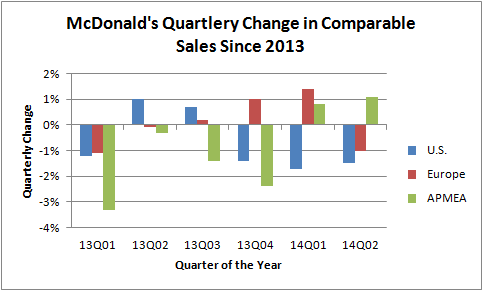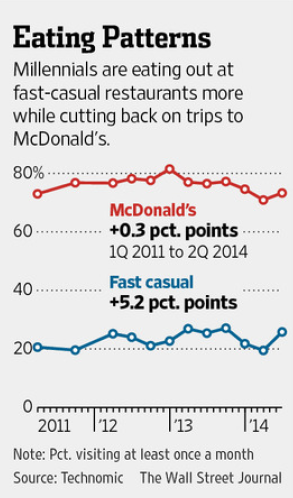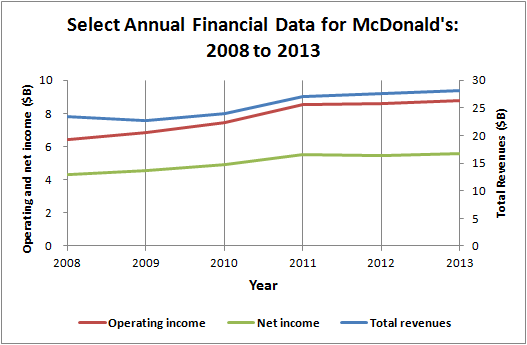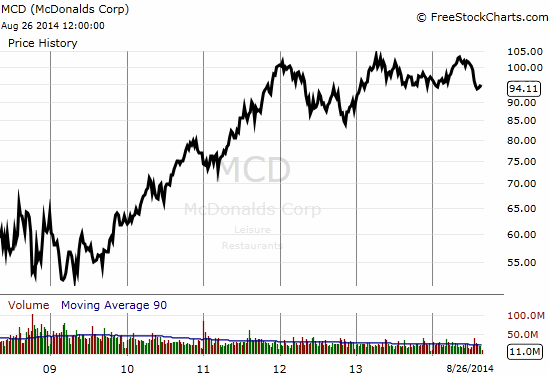(This is an excerpt from an article I originally published on Seeking Alpha on August 27, 2014. Click here to read the entire piece.)
McDonald’s (MCD) has struggled recently, and the Wall Street Journal thinks it has found someone to blame in millennials.
Millennials are the current group of young people coming of age in America. They are commonly identified as the source of major societal shifts, problems, and potential. It is a time-honored tradition to look to a society’s latest crop of young adults as the crux of all important trends. So I read with interest a recent Wall Street Journal (WSJ) article quoted throughout the financial press titled “McDonald’s Faces ‘Millennial’ Challenge.” The main cause of alarm is that McDonald’s “…reported its sharpest monthly decline in global same-store sales since early 2003, adjusted for calendar irregularities.” {snip}

Source: McDonald’s quarterly earnings reports
{snip}…the WSJ, in conjunction with fast-food research firm Technomic, think they have found at least one culprit in millennials, defined in this study as adults aged 19 to 37…{snip}
The key evidence is that a small sliver of this population, those aged 19 to 21, have reported eating at McDonald’s at least once a month at a rate of 12.9 percentage points less than at the beginning of 2011. Meanwhile, 19 to 21-year olds have reported eating at “fast-casual” restaurants at a rate of 2.3 percentage points higher than at the beginning of 2011. {snip}

Source: WSJ
{snip}…it seems that the youngest of this millennial demographic have little impact on the overall eating patterns, especially for fast-casual. Moreover, there are significant periods over this timespan where McDonald’s out-performs fast-casual. {snip}
The WSJ explains the trends by claiming “increasingly, younger diners are seeking out fresher, healthier food and chains that offer customizable menu options for little more than the price of a combo meal.” {snip} This all begs the question as to what food choices are really being made. {snip}
The final problem I want to point out with this demographic study is that there is no notion of lifecycle change. {snip}

Source: McDonald’s Financial Highlights
{snip}

Source: FreeStockCharts.com
I am guessing a healthy 3.4% dividend and share buybacks help support the stock (MCD has a $18-$20B, 3-year cash return target). This is likely enough to maintain MCD as an attractive investment, even as the above-described, volatile demographic trends play out. MCD is probably just a marketing campaign away at (re?)educating the younger millennials about all the healthier, even customizable, options it already has on its menu.
Be careful out there!
(Note a request to the author of the WSJ piece for the complete data set used in this demographic study was unanswered at the time of writing.)
Full disclosure: no position
(This is an excerpt from an article I originally published on Seeking Alpha on August 27, 2014. Click here to read the entire piece.)
